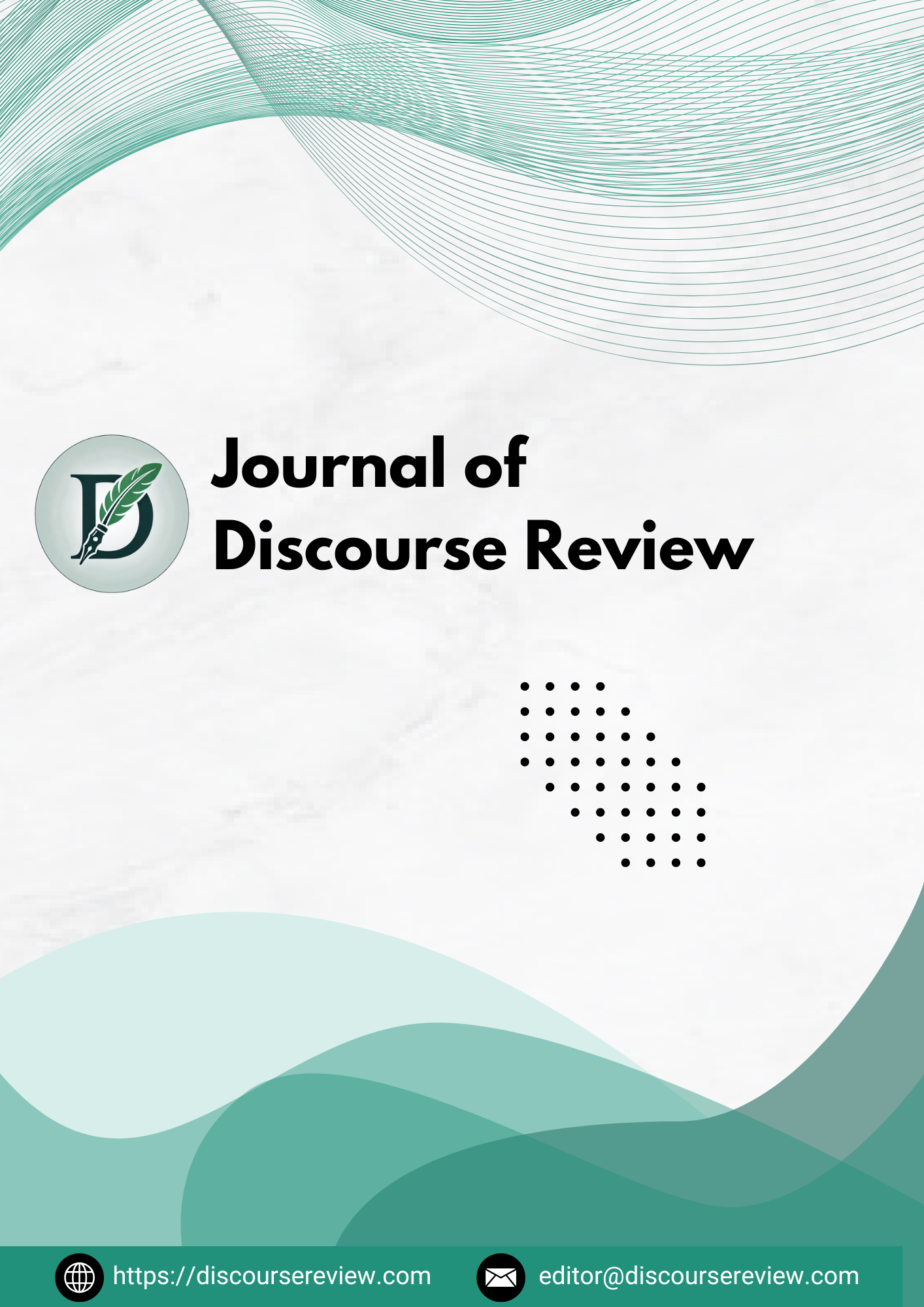
Journal of Discourse Review
Open Access Humanitarian Scholarship
7 days
Time to first decision

Open Access Humanitarian Scholarship
Time to first decision
2025, 1(2), 201-210, July 31, 2025
Language differentiates humans from other creatures. It involves the development, acquisition, and use of complex communication systems. For Bangladeshi students, language acquisition is affected not only by individual factors, like motivation, ability, and past knowledge, but also by their soci…
2025, 1(2), 191-200, July 30, 2025
Legal English constitutes a specialized linguistic register distinguished by its formal style, precise terminology, frequent use of Latin expressions, and retention of archaic structures. For law students whose first language is not English, particularly those educated…
2025, 1(2), 209-218, July 29, 2025
Madhu-Sravani, a traditional folk festival of Mithila, embodies the intricate relationship between women, nature, and cultural heritage through an ecofeminist lens. Rooted in the worship of Shiva, Parvati, and serpent deities, this festival serves as a unique confluenc…
2025, 1(2), 201-208, July 29, 2025
Periodicals play a significant role in shaping public opinion and influencing society as a media product, a tool of the culture industry, and a communication state apparatus. They have a broad societal impact, instilling specific ideas by disseminating narratives throu…
2025, 1(2), 191-200, July 29, 2025
Teaching of English language in Bangladesh is undergoing a metamorphosis because of the advent of ICT and the use of AI. In light of research on the use of ICTs and materials in public tertiary level education in the context of EFL pedagogy, this paper explores the pos…
2025, 1(2), 179-190, July 22, 2025
The changing role of political consulting in India is examined in this article as a type of infrastructure power that combines algorithmic accuracy with affective and cultural modulation. Today's political consultants operate as epistemic engineers, going beyond co…
2025, 1(2), 169-178, July 22, 2025
In the era of pervasive digital technologies, surveillance has evolved into a distributed, algorithmically driven force. This paper argues that datafication, the conversion of human lives into quantifiable digital data, manifests in deeply gendered forms of surveillanc…
2025, 1(2), 158-168, July 22, 2025
This paper looks at how the English language plays a complex role in tribal literature, focusing on its ability to empower as well as its potential to erase indigenous identities. By critically analysing literary works from various tribal authors and conducting qualita…
2025, 1(2), 147-157, July 22, 2025
The Syrian civil war, now in its second decade, has witnessed extensive use of banned weapons—particularly cluster munitions and landmines—by both state and non-state actors. This study examines their deployment, humanitarian impact, and the legal challenge…
2025, 1(2), 138-146, July 22, 2025
This article critically examines Ambedkar-Gandhi debates on caste and varṇa, focusing on their differing interpretations during late colonial India’s sociopolitical transformations. Centred around the 1932 dispute over separate electorates for ‘untouch…
2025, 1(2), 129-137, July 22, 2025
This article examines Kim Stanley Robinson’s The Ministry for the Future through the framework of Mikhail Bakhtin’s dialogism, emphasizing the novel’s polyphonic narrative and its significance in contemporary discourse on climate change. By investigat…